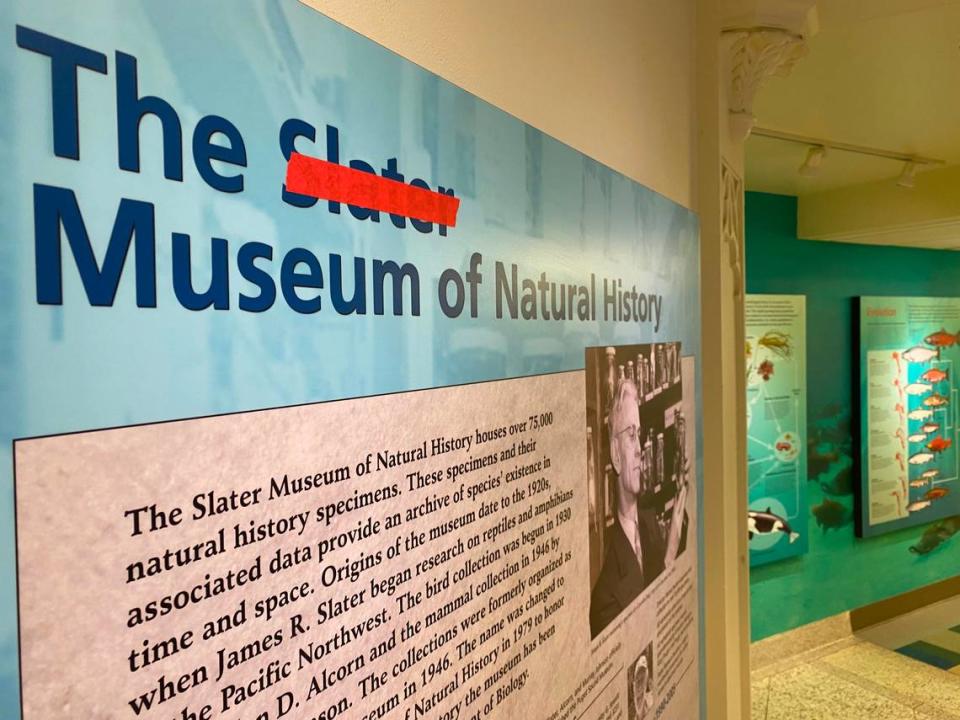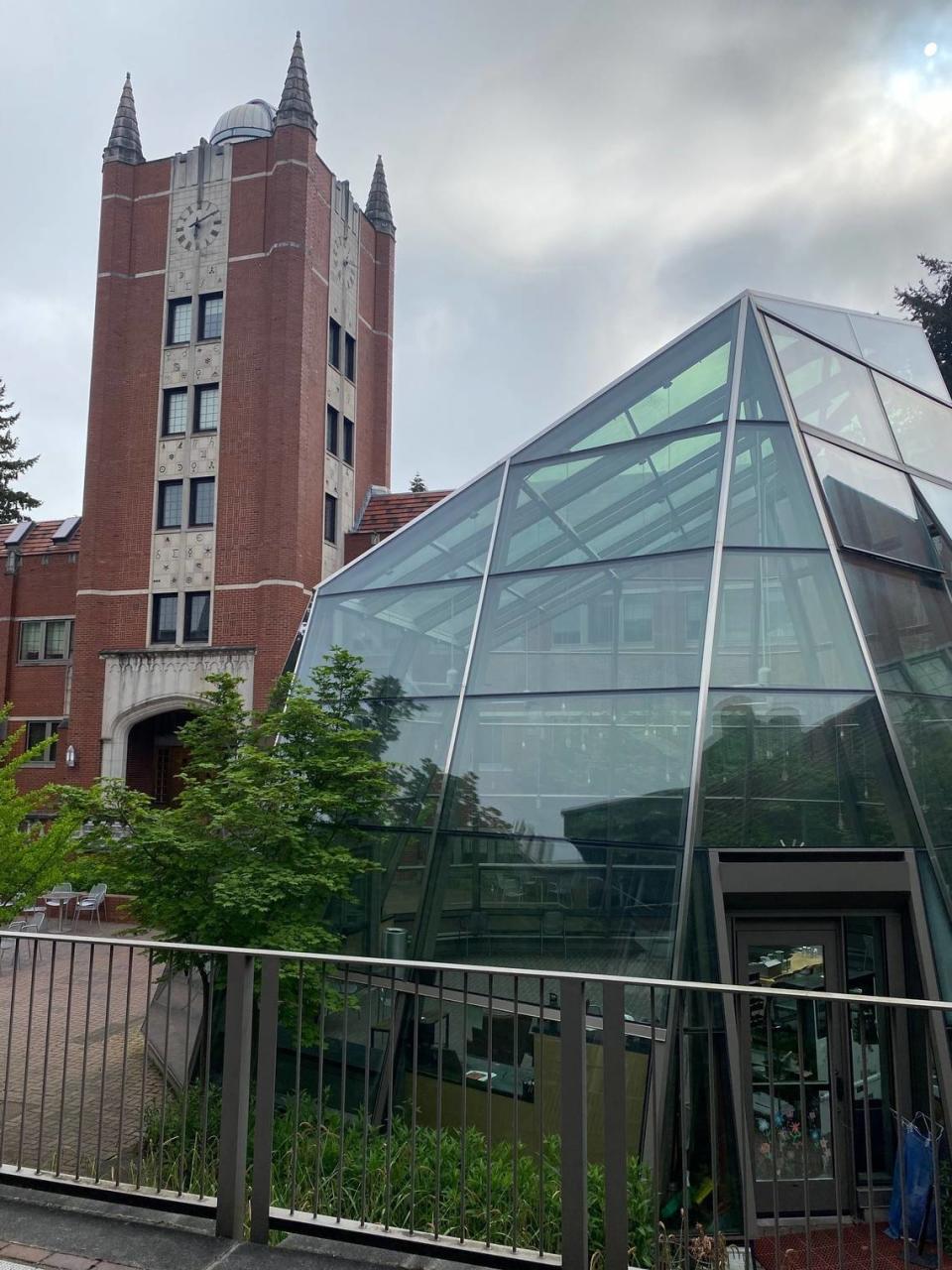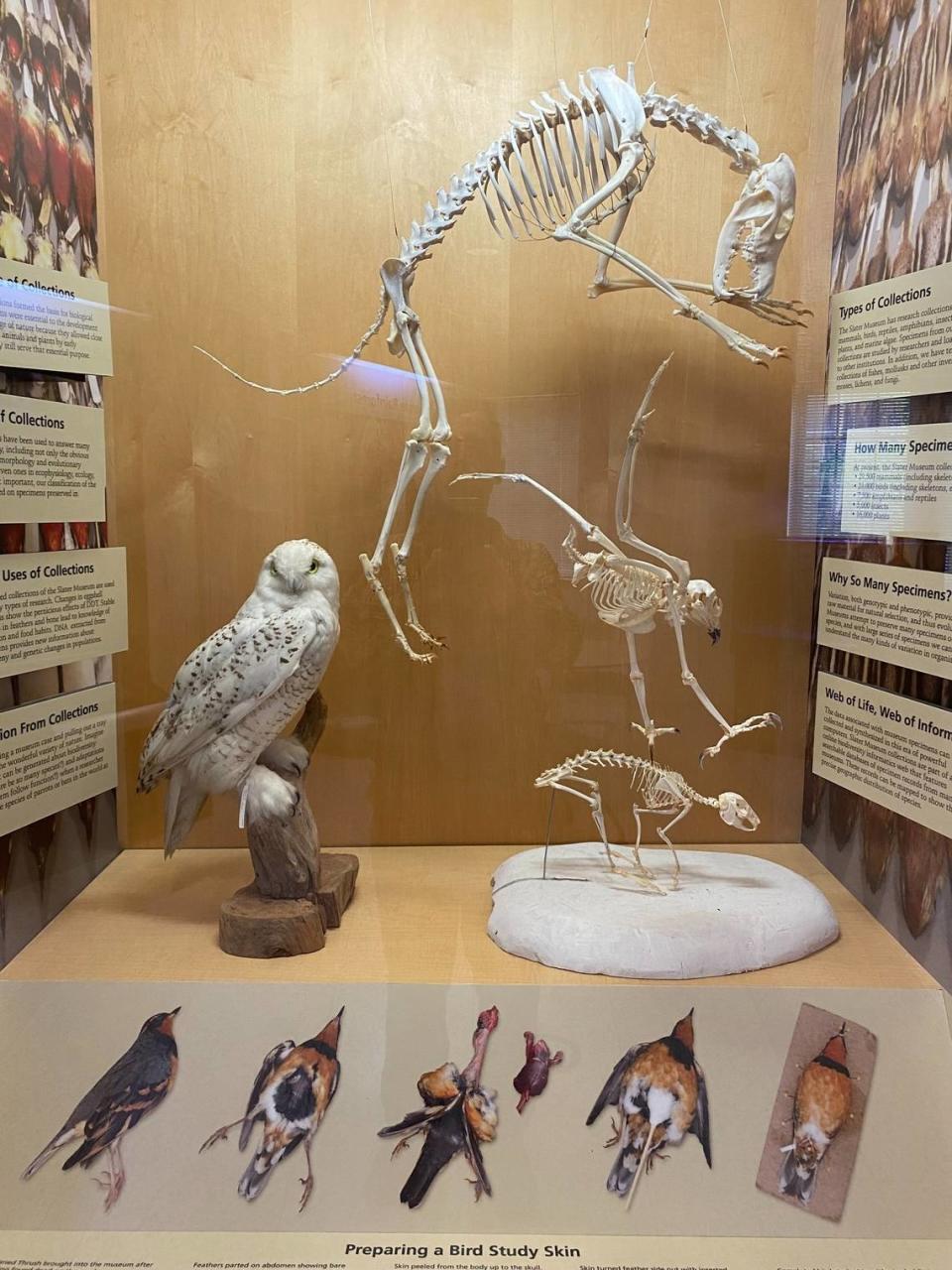Professor touted racist theories. Now Tacoma university will remove his name from museum
When the University of Puget Sound named its natural history museum after James Slater in 1979, it apparently didn’t know or didn’t care that the former biology professor taught a class based on racist theories.
The school’s board of trustees voted unanimously May 12 to remove Slater’s name from the museum after a student discovered the now deceased professor taught courses in eugenics there as late as 1951. Eugenics is the practice of arranged human reproduction to supposedly increase desirable characteristics in a population. Embraced by Nazi Germany, the philosophy was thoroughly discredited by the end of the 20th century for being unscientific and racist.
“Puget Sound’s commitment to diversity is inherently at odds with the concept of eugenics on a fundamental level,” said UPS vice president Lorna Hernandez Jarvis, who co-chaired a committee to review the matter. “A public commemoration of an individual with a decades’ long commitment to these beliefs implies a reverence that is misaligned with the mission, vision, and values of the institution.”
Slater taught at what was then the College of Puget Sound from 1919 to 1951. He taught a eugenics course for nearly his entire time at the college.
When Slater began his career, eugenics was an accepted scientific discipline. But by the time he finished it had largely been debunked. Its last significant cheerleader was Stanford Nobel Prize-winning physics professor William Shockley — a dedicated eugenicist who spent the last decades of his life trying to prove that people of African descent were inferior. Shockley, who had no training in biology, died a pariah.
The Tacoma college continued offering the eugenics course until 1954.
Student Researcher
In 2021, UPS student Grace Eberhardt submitted a research paper to university president Isiaah Crawford and requested that Slater’s name be removed from the museum. Eberhardt found that Slater was a member of the American Eugenics Society and through his teaching supported sterilization, race-based hierarchies and the notion that genetic traits made some more prone to criminal behavior.

At the same time Eberhardt was conducting her research, a UPS committee formed to establish naming protocols submitted its recommendations to Crawford. A new committee reviewed Eberhardt’s request. It was made up of students, faculty, staff, alumni and trustees, as well as experts in biology, historical research, ethics, diversity, equity, inclusion, communications, fundraising, and donor relations.
“They did a ton of research and looked at what different institutions have had, and just really into the history of this individual,” UPS spokesperson Lindsay Nyquist said Friday.
The committee’s final report in April found, “compelling evidence that the name is harmful to the university’s mission and commitment to diversity.”
Slater’s teachings had a negative impact on historically marginalized communities, people of color and people who are neurodivergent, the committee found.
“The (Slater) name is a constant reminder of a harmful belief system that oppressed and caused deep mental and physical harm to members of those communities,” the committee said.
The university has created a website to explore the history of eugenics at the school.

“We want to make sure that everyone feels comfortable and accepted and understands that they really, truly are a part of this community,” Nyquist said. “And that name was a reminder of a system from the past that was not in alignment with who we are as an institution.”
The natural history museum renaming is the latest in a similar series in the local area. In 2021, Woodrow Wilson High School was renamed Dolores Silas High School. Wilson, the 28th president of the United States, served from 1913 to 1921 and was known for leading the country through World War I. He was a segregationist who wrote a history textbook praising the Confederacy and was an advocate of the Ku Klux Klan.
Also in 2021, Jason Lee Middle School was renamed Hilltop Heritage Middle School. Lee was a missionary known for the white settlement of the Pacific Northwest in the 19th century. He was largely insensitive to native culture, establishing a school in an effort to convert Native Americans to the beliefs and practices of white Americans. The school also helped spread disease among students.
Reboot
The 2,100 student university decided to return to its past for the museum’s new name. It will now be called The Puget Sound Museum of Natural History — the same name that was used before it was named for Slater. The museum houses over 100,000 bird, mammal, reptile, amphibian, plant, insect and geological specimens.

The university has begun removing the Slater name from the museum’s physical and online spaces.
The museum is closed during the summer although group tours can be arranged by contacting the museum.

